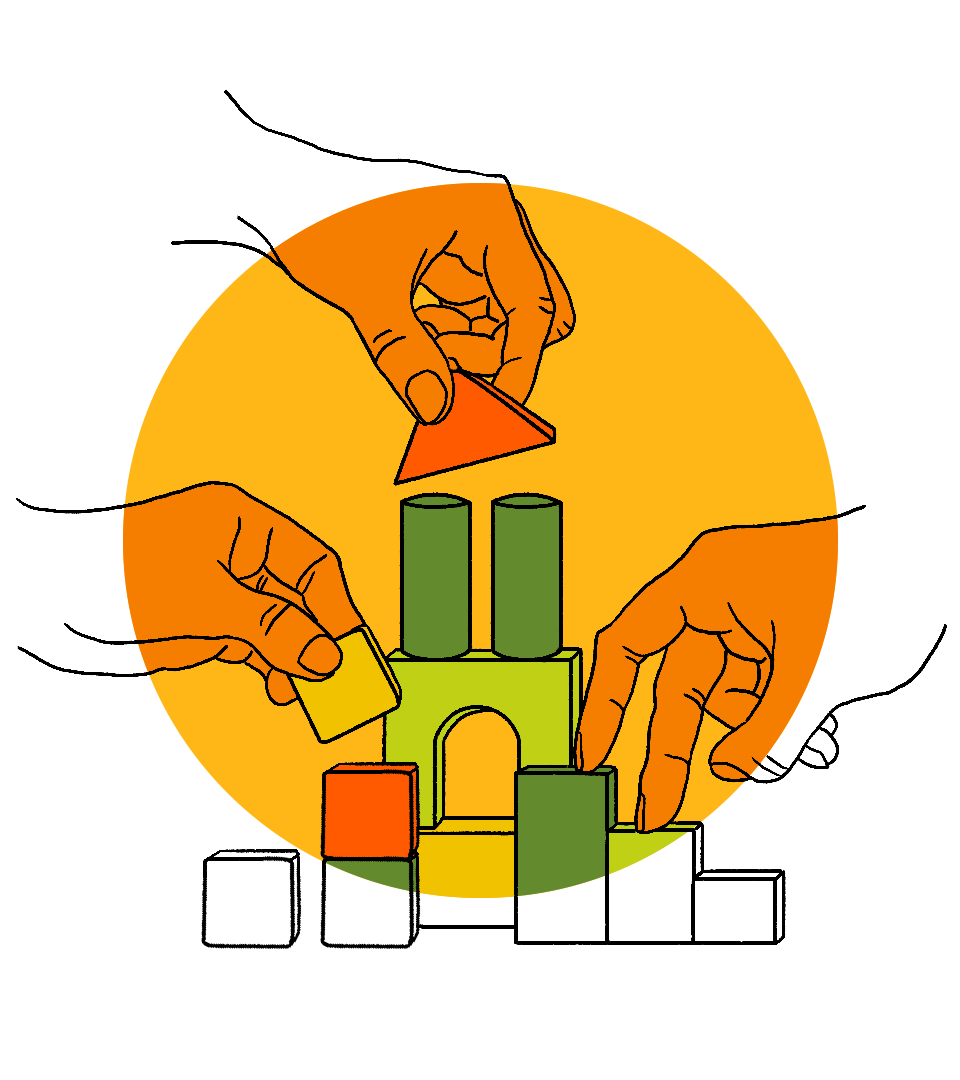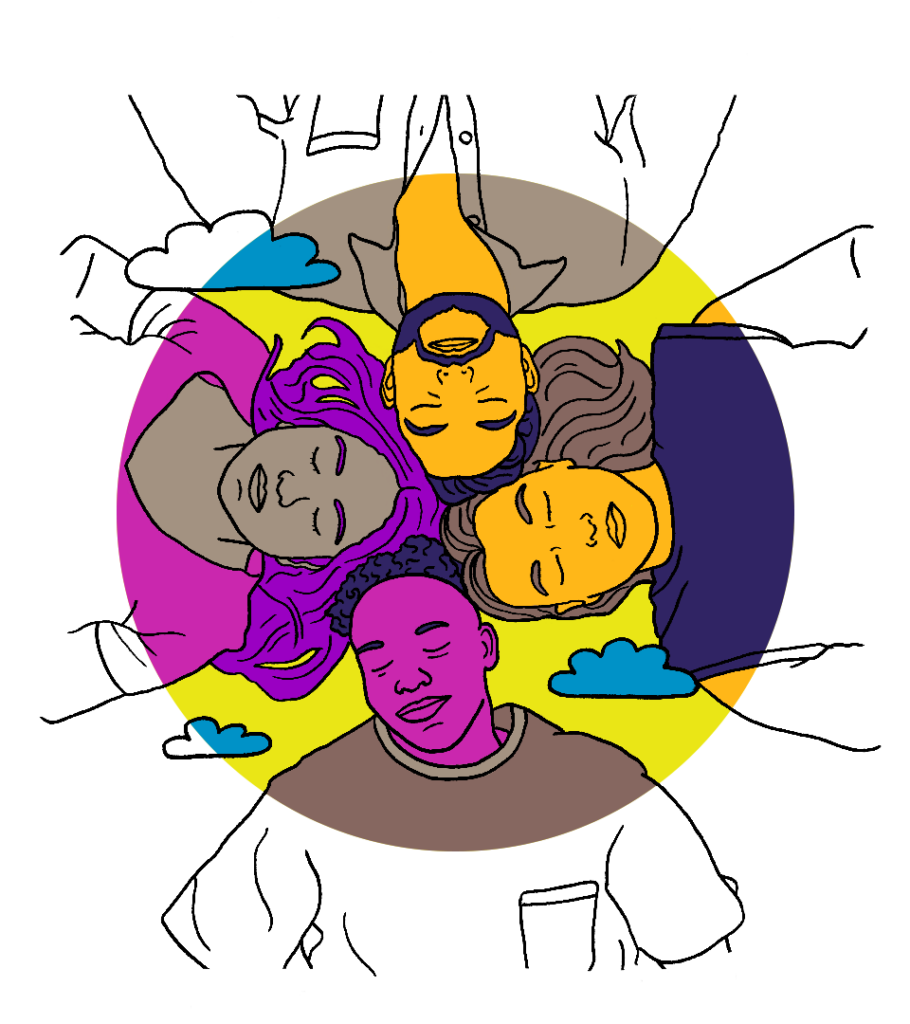A Bristol, UK-based programme encouraging playful encounters in city spaces became a global network of creative producers. The enforced pause of the pandemic enabled valuable reflection about who may play.
Playing can be a truly engaging activity. It can encourage participation, agency, connection and fun encounters. In public city spaces, especially where there are large volumes of footfall, playing is not necessarily an activity that happens spontaneously, outside of designated locations such as parks and playgrounds. But what happens when city spaces suddenly offer a pop-up invitation to play, right then and there, for a short period of time? Something to remind us that play can be more than just a pastime – that it can be ingrained in the mundane.
About a decade ago, Watershed, a Bristol- based independent cinema and cultural hub, initiated a programme that uses play in public spaces as a tool for disrupting normative views on play. Watershed’s R&D space, the Pervasive Media Studio, was the perfect incubation ground for the conception and prototyping of such an idea, drawing on a rich community of street games makers and the playful creative technology interventions made within this community. A programme was born that sought to produce creative technology within the existing city infrastructure to facilitate playful encounters. This programme, Playable CityTM, has now been operating for 10 years, reaching five continents and nine cities, from Lagos to Recife, Tokyo to Melbourne, Seoul to Austin. We have worked with over 74 partners and over 50 creatives, reaching over one million people globally since conception.
Playable City extends you an open and free invitation, via creative technology installations, to play in public spaces, to catalyse a conversation about the kind of city you want to live in. Over the past decade, Playable City has supported projects that inject some fun into an ordinary pedestrian crossing (Stop, Smile, Stroll); released an interactive pack of origami-like light-projected animals in random places (Urbanimals); inspired people to dance underneath lamp posts, interacting with shadows that the lamp post captures and projects back onto the floor as untethered beings (Shadowing); and encouraged text- based conversations between people and everyday city objects such as post boxes, graffiti and parking metres (Hello Lamp Post). These four projects, respectively, won the Playable City annual award from 2013 to 2016, from a global shortlist of projects that explored the theme of playfulness in cities.
The years following the last award in 2016 brought an adaptation of the operational model. As opposed to merely platforming projects, the delivery team decided it was time to begin seeding an international network of creative producers, with the intention of forging longer- term partnerships with like-minded producers from different cities around the world. This would enable us to grow a more sustainable network and better understand different contexts of city change. What followed was a programme called Creative Producers International (CPI), which ran from summer 2017 to spring 2020 and recruited 15 creative producers from all over the world for a developmental opportunity. Over a period of two years, this cohort committed to learning and developing their creative producing practice and met twice in person: once in Bristol and once in Tokyo. Each meeting lasted for several weeks and strengthened the bonds of the group, sparking ideas and forging collaborations, many of which endure today. Members of the CPI cohort each manifested their learnings in their own cities, creating their own city- specific Playable City projects/experiences.
As with most other public-facing interventions, Playable City encountered an extended pause when the pandemic hit. This pause coincided with a period of internal reflection around the question of who has the privilege to play. As Watershed and Pervasive Media Studio transitioned our work online, all delivery followed suit. Still, we were determined to find a way to implement our learnings from the CPI programme and adapt Playable City for the better.
Playable City extends you an open and free invitation to play in public spaces, to catalyse a conversation about the kind of city you want to live in
In 2021, we co-designed and co-produced hybrid labs with some of our CPI alums based in Lagos and Durban, looking at themes of creative producing, future heritage, climate justice and creative resilience. We also received funding from Arts Council England’s Cultural Recovery Fund for a three-day online artists’ lab to focus on what a future socially conscious Playable City could look like. In the context of the pandemic, as we transition out of lockdown phases, this means embedding public health considerations in all our Playable City operations and experiences. In our home city of Bristol, and in a building located alongside the harbour where Colston’s statue was thrown into the water in the summer of 2020, it also means intentionally interrogating the very concept of ‘playfulness’: for instance, how do we responsibly open an invitation to everyone to play in city spaces that are still reckoning with historical and contemporary racism, inaccessibility, and other forms of discrimination and injustice?
With these thoughts in mind, we convened our artists’ lab with six artists and makers from among our Pervasive Media Studio residents. The group came together online to converse, share openly and honestly, and play. This artists’ lab produced six co-designed themes, which we plan to embed into all our future Playable City work:
- Definitions: How can the definition of play be expanded and owned by everyone and especially those who are marginalised and underrepresented?
- Permissions: How can we better understand the different social and cultural pressures different people feel about how they can ‘play’ in public. What and who might consciously or unconsciously reinforce these pressures?
- Safety & comfort: Who feels safe and comfortable within a space to play in their own style? How is safety and comfort given or taken away?
- Perspectives: How can we embrace the many different ways people perceive cities, spaces and play?
- Details: What details truly build a sense of space for people? How do these change from person to person and how do they shift over time?
- Accessibility: What biases are present in the very materials with which we create or ask others to be creative. How can this create barriers and inaccessibility, and how do we dismantle these?
In 2022, we launched a call for six Playable City prototype teams to participate in a Sandbox process, comprising a three-month period of intense research and development, with the successful prototypes to be announced early in 2023. It is our hope that this new phase will reflect our decade-worth of learning, add to the reinvigoration of civic spaces in Bristol and further afield, model growth and social responsibility within the creative economy, and interrupt someone’s day with moments of fun and play.








